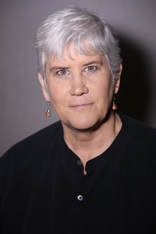|
Why do we do things? What motivates you? Do rewards or punishments motive you, truly? If we want peace and success in this world for all communities and for all people, what do we have to do?
Recent world events have shown how people try to motive others. The problem with many of these carrots and sticks is that they have not been thought through. As long as rewards and punishments are used to motivate people, we will live in a world build on fear and scarcity. When a terrorist plants a bomb and kills innocent people, what do they hope to accomplish? Will France be motivated to give them land, money, and jobs? Will the United States? I think one of the saddest things in this world is when people destroy other people in an attempt to get what will make them happy. It is literally never successful. What do you want? Do you think about how you are trying to get it? Marshall B. Rosenberg developer of "Non-Violent Communication" shares that there is enough for every one of the seven billion people on this planet as long as we don't have to have a specific piece of food, land, and person. There is enough love for each of us as long as we aren't set on that love coming from someone who doesn't love us. There is enough land as long as we are not set on a particular unattainable piece of land. The movie, "Avatar" featured all the stress and trauma that went into mining for a particular mineral, which the movie producers adeptly named, "Unattainium." There was enough for everyone as long as force and destruction was not used to get energy, housing, and love. I ask myself what is my "Unattainium?" How can I share more? The Mormon (LDS) church recently changed their guidelines to bishops and other leaders of congregations to include this wording in revisions to the LDS Handbook, http://www.scribd.com/doc/288685756/Changes-to-LDS-Handbook-1-Document-2-Revised-11-3-15-28003-29 "A natural or adopted child of a parent living in a same-gender relationship, whether the couple is married or cohabiting, may not receive a name and a blessing." And I wonder how is the LDS church trying to bring people to God or make the world a better place with this kind of mandate. What do they want? Do they want to shame or coerce gay men and lesbians into leaving their relationships so that their children will have a chance at a particular piece of heaven? Do they want to punish children and withhold blessings as a way of manipulating the people and world around them? Are they trying to send a message to their membership that anyone who doesn't do what they think is right will be punished and love will be withheld? If they are trying to motivate people, I think they will have about as much success as the terrorists in France, the United States, and elsewhere in the world. Dan Pink, in an article entitled, "Drive: The surprising truth about what motivates us," from www.thersa.org said, "the science shows that we care about mastery very, very deeply, and the science shows that we want to be self-directed. And I think that the big takeaway here is that if we start treating people like people and not assuming that they're simply horses, you know, slower, smaller, better smelling horses, if we get past this kind of ideology of carrots [rewards] and sticks [punishment] and look at the science I think we can actually build organizations and work lives that make us better off, but I also think they have the promise to make our world just a little bit better." Further explaining, Pink puts motivation into an economic model but many of the same principles hold true for any organization, "Pay people enough so that they're not thinking about money and they're thinking about the work. Now once you do that, it turns out there are three factors that the science shows lead to the better performance, not to mention personal satisfaction: autonomy, mastery, and purpose. Autonomy is our desire to be self directed, to direct our own lives. Now in many ways traditional notions of management run afoul of that. Management is great if you want compliance, but if you want engagement, self-direction is better." In your organization, whether it is a church, a business, or a country, do you want compliance or engagement? Pink continues, "Mastery is our urge to get better at stuff; we like to get better at stuff. This is why people play musical instruments on the weekend. You have all these people who are acting in ways that seem irrational economically; they play musical instruments on weekends -why? It's not going to get them a mate, it's not going to make them any money why are they doing it? Because it's fun, because you get better at it and that's satisfying." Bombing people or condemning then for not agreeing with you does not motivate them to get better at what you want or pay attention to what you want. "What you see more and more is a rise of what you might call the purpose motive as if more and more organizations want to have some kind of a transcendent purpose: partly because it makes coming to work better; partly that's because that's the way to get better talent. And what we're seeing now is in some ways, when the profit motive becomes unmoored from the purpose motive bad things happen. Bad things ethically sometimes but also bad things like not good stuff, like crappy products, like lame services, like uninspiring places to work that when the profit motive is paramount, or when it becomes completely unhitched from the purpose motive, it just... people don't do great things," explains Pink. What is the purpose of your community? Is your community growing in engagement and talent? Are you and those around you doing great things?
0 Comments
|
Kimberly Burnham, PhD (Integrative Medicine)
860-221-8510 phone and what's app. Skype: Kimberly Burnham (Spokane, Washington) NerveWhisperer@gmail.com 4 Month Brain Health Coaching Package $600 includes: 8 one hour session (twice a month) plus ... Details Here
Regular Rate $120 per hour
Free 20-30 minute consultations available.. Call 860-221-8510 PST or email NerveWhisperer@gmail.com for an appointment this week.
Archives
January 2018
Categories
All
|


